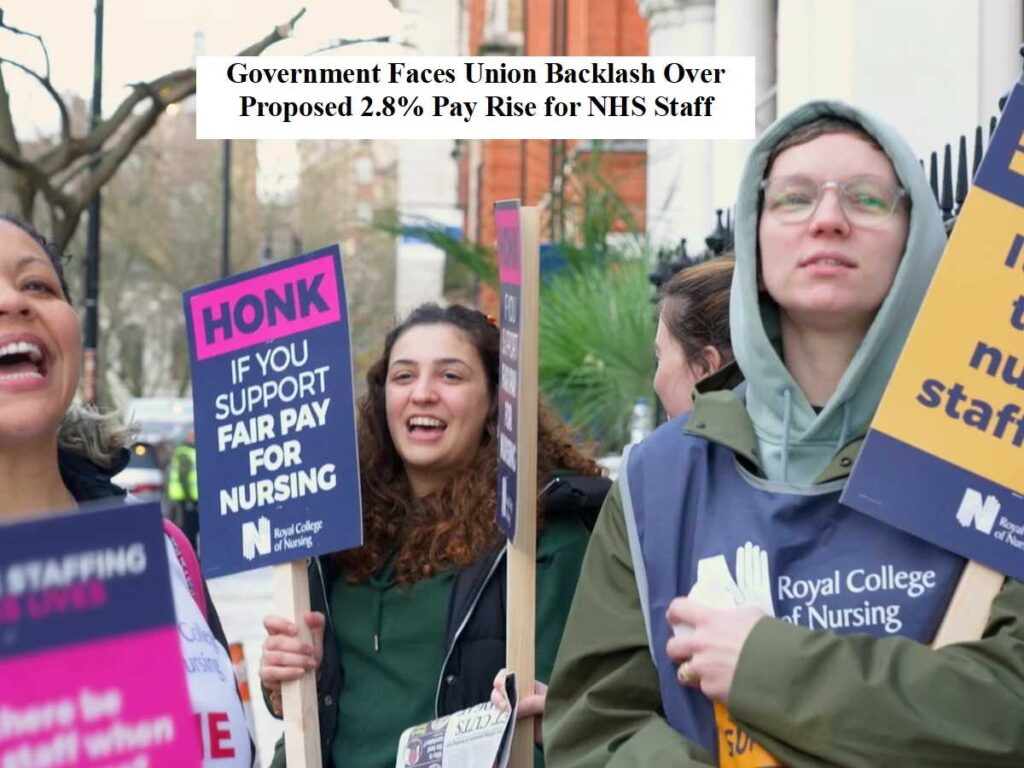The UK government is poised for a significant confrontation with trade unions with a proposal of 2.8% pay for NHS staff, teachers, and other public sector workers for the fiscal year 2025/26.
The recent recommendation has sparked outrage among healthcare unions, who argue that the increase fails to meet the pressing financial needs of workers already trapped with rising living costs.
The National Education Union said it was “putting the government on notice” that it was not enough, while Unite, one of Labour’s biggest donors, called the offer to NHS staff “an insult.”.
In written evidence to the NHS pay body, the Department of Health said the 2.8% for nurses, doctors, and other NHS next year was viewed as “a reasonable amount to have set aside based on the macroeconomic data and forecasts and taking into account the fiscal and labour market content.”
The Royal College of Nursing (RCN) has been particularly vocal, describing the proposed pay increase as “deeply offensive” and an insult to nursing staff.
RCN General Secretary, Prof. Nicola Ranger, emphasized that the government has effectively valued nursing staff at just 2 euros more per day which is less than the price of a coffee.
She called for immediate direct negotiations to address systemic pay issues and prevent further industrial action.
Similarly, UNISON, another major union representing healthcare workers, warned that the proposed pay rise would be poorly received by staff facing a challenging winter.
The union criticized the government’s decision to delay discussions on modernizing NHS pay scales and insisted that linking pay reform costs to the overall budget for wage increases would demoralize the workforce.
UNISON’s head of health, Helga Pile, stated that NHS workers are essential to improving service performance and that the proposed raise is insufficient to support this goal.
Although the Government Department of Health and Social Care (DHSC) defended its position by stating that the 2.8% increase is aimed at painting competitiveness in public sector salaries amid challenging financial circumstances.
The government acknowledges the need for a sustainable approach to NHS funding but insists that it must balance this with broader fiscal responsibilities.
Many NHS employees feel that the proposed pay rise is not adequate to address their contributions or their financial struggles. The RCN has not adequately reflected their contributions or addressed their financial struggles.
As tensions rise between the government and public sector unions, the potential for further industrial action looms large. Unions are prepared to escalate their demands if negotiations do not lead to satisfactory outcomes.
The situation underscores the ongoing challenges facing the NHS as it seeks to recover from years of underfunding and workforce shortages while ensuring quality patient care amidst rising operational pressures.







